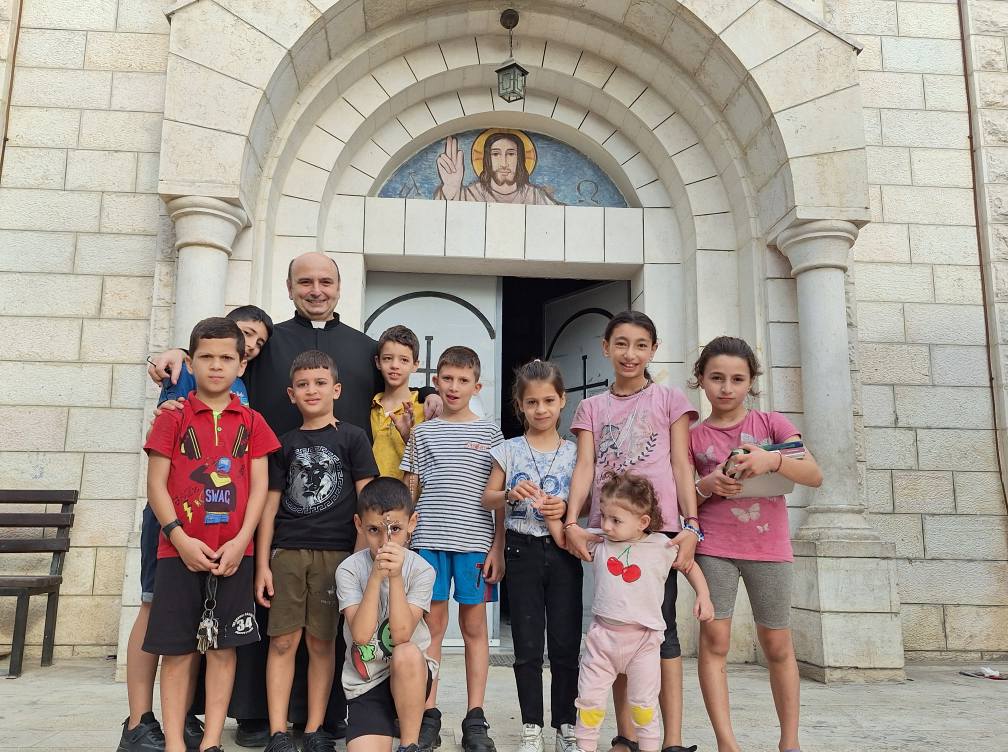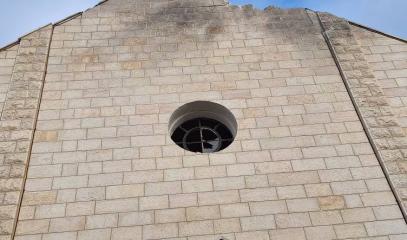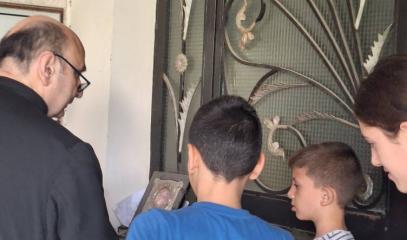Patriarch Pizzaballa: Gaza agreement a “new beginning”, time to think “about how to rebuild”
Official ratification awaited after Israeli government meeting. In a statement, the Latin primate of Jerusalem speaks of “a first phase” which nevertheless represents “good news”. Fr Romanelli calls for “just and lasting peace”. Consensus reached on the release of prisoners and the withdrawal of troops, but unresolved issues remain to be defined in subsequent phases.
Jerusalem (AsiaNews) - ‘It is a first step, a first phase,’ but it certainly represents ‘good news’ that makes us ‘very happy.’ This is what the Latin Patriarch of Jerusalem, Cardinal Pierbattista Pizzaballa, wrote in commenting on US President Donald Trump's announcement last night of the achievement of a peace agreement in Gaza - at least the first phase - between Israel and Hamas.
The green light was given in the last few hours by mediators from both sides meeting in Sharm el-Sheikh, Egypt. This afternoon, the Israeli government is expected to give the go-ahead after a meeting of the security cabinet, which should be followed by the official signing of a truce long awaited by the people of the Strip, who have been celebrating in recent hours despite the continuing bombings.
There is also happiness and satisfaction among the relatives of the Israeli hostages, who will be released within three days of the truce being made official and the withdrawal of the Israeli troops beginning.
The Latin primate has worked hard over the past two years to end the conflict in Gaza and secure the return of the hostages held by Hamas since the attack on Israel on 7 October 2023.
The cardinal has repeatedly condemned the barbarity of the extremist movement that controls the Strip, while calling for an end to the war and the massacre of a population reduced to starvation and exhaustion.
He has also personally visited the parish of Gaza, which has also been hit by missiles, on the two occasions when the Israeli government has allowed it, bringing humanitarian aid and basic necessities.
Renewing the invitation to the day of prayer for peace called by Pope Leo XIV for 11 October, the cardinal warns that ‘naturally there will be others [steps], and certainly other obstacles will arise. But now we must rejoice in this important step that will bring a little more confidence for the future and also new hope, especially for the peoples, both Israeli and Palestinian’.
The cardinal sees ‘something new and different’ and a ‘new atmosphere’ for the negotiations, although ‘life inside Gaza will remain terrible for a long time to come’. ‘We hope,’ he concludes, ‘that this is only the beginning of a new phase in which we can, little by little, begin to think no longer about war, but about how to rebuild.’ Humanitarian relief and the unconditional entry of sufficient aid for the suffering population are priorities, accompanied by a path of healing and reconciliation for both Palestinians and Israelis.
Among the first reactions to the announcement of the agreement was that of Fr Gabriel Romanelli, parish priest of the Latin Church of the Holy Family in Gaza, who shared the suffering and atrocities of the conflict with the faithful and the hundreds of people sheltering in the Church.
In a note on social media, the Argentine priest of the Incarnate Word hopes for ‘just and permanent peace in Gaza,’ while the life of the community continues as usual with the celebration of Mass, the Rosary and the recitation of psalms. Today, in particular, Fr Romanelli quotes Psalm 115, which states: ‘Not to us, Lord, not to us, but to your name give glory, for your faithfulness, for your grace.’ It is a call to prayer and thanksgiving to God, that he may be a source of “mercy” and ‘justice’ so much invoked and awaited in the Strip as in the whole Holy Land.
According to initial reports, the agreement reached by Israel and Hamas, mediated by US President Donald Trump - or at least its first phase, as the next steps remain uncertain - should provide for: the release of hostages still held by Hamas in exchange for the release of 1,950 Palestinian prisoners (1,700 of whom were arrested since the start of the war), but the most famous and controversial, Marwan Barghouti, would appear to be excluded.
This is accompanied by the partial withdrawal of Israeli troops from the Strip, with the reopening of the Rafah crossing on both sides. The prisoner exchange is expected to take place within 72 hours of the signing, but according to some sources, it could be finalised as early as Sunday 12 October.
It is also expected that at least 400 trucks of humanitarian aid will enter Gaza daily within the first five days. Also today, at 2 p.m. Jerusalem time, the Israeli government will meet to vote on the peace plan, which has already been formally approved after Prime Minister Benjamin Netanyahu gave the green light, and from which the official list of Palestinian prisoners should also emerge.
On the other hand, there is no further information on the stabilisation force that will be called upon to guarantee the ceasefire in the Strip and the stabilisation of the area, as well as supervising the disarmament of Hamas. This is far from a minor issue and perhaps justifies the cautious approach and absolute secrecy maintained by the parties involved in the negotiations, part of an “overall strategy” recently invoked in AsiaNews by Bernard Sabella for true peace in the region.
At this stage, there is no shortage of criticism of the agreement from the ultra-religious and radical faction of the Israeli government, starting with Finance Minister Bezalel Smotrich, who speaks of ‘mixed’ emotions.
On the one hand, there is ‘joy’ at the return of the prisoners after more than two years, accompanied by ‘great fear’ at the “emptying” of [Israeli] prisons and the ‘release of the next generation of terror leaders’. At the end of the note, the pro-settlement leader warns that there must be no return to “the Oslo path” and the “misguided ideas of 6 October”.
The tone of UN Secretary-General António Guterres' statement was completely different. In a note, he welcomed ‘the announcement of an agreement to secure a ceasefire and the release of hostages in Gaza, based on the proposal put forward by the President of the United States. I commend the diplomatic efforts of the United States, Qatar, Egypt and Turkey,’ he concluded, "in mediating this desperately needed breakthrough. I urge all parties concerned to fully respect the terms of the agreement'.
The United Nations has just released an updated report on the devastation in Gaza City, where 83% of structures have been destroyed and 81,000 housing units damaged. Satisfaction was also expressed by Palestinian Authority President Mahmoud Abbas, who expressed ‘hope that these efforts will serve as a prelude to achieving a sustainable political solution.’ The goal, he added, remains ‘the end of the Israeli occupation’ and the creation of ‘a Palestinian state along the borders of 4 June 1967.’
Finally, thanks were expressed to US President Trump, who is expected to fly to Egypt to officiate the official signing of the peace agreement and then, accepting Netanyahu's invitation, give a speech to the Knesset.
(Photos published today on Fr Romanelli's Facebook page)
12/02/2016 15:14










.png)










